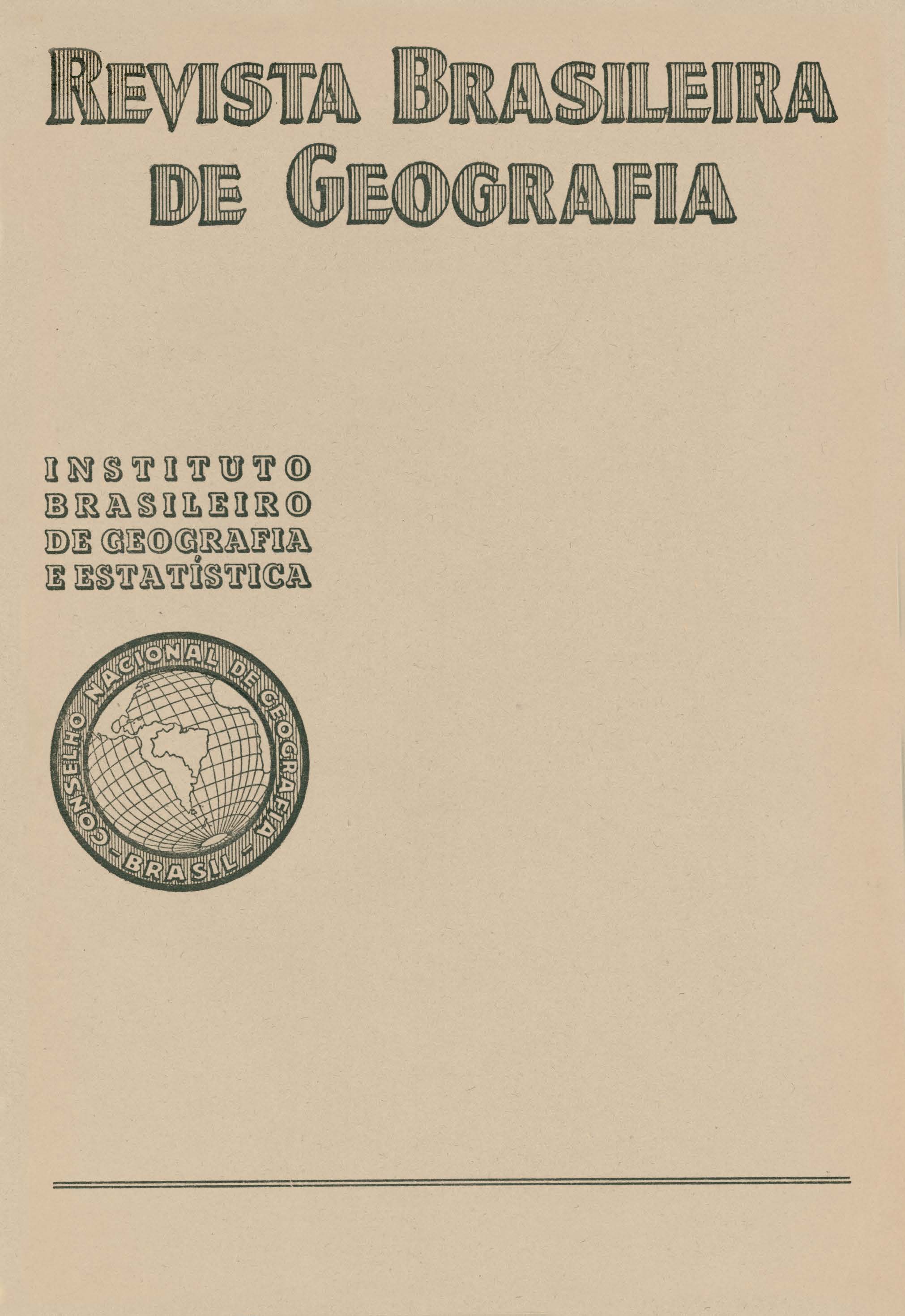A Lei agrária e a geografia
Palavras-chave:
Geografia Econômica;, Agricultura;, Geografia AgrícolaResumo
The author, Afrânio de Carvalho, makes a study of the agrarian law which is now being drafted, showing that the consideration of geographic factors was not omitted in its preparation.
This attention to the natural conditions included, as he explains, not only the study of regional aspects, in order to conciliate the local differences, but also was careful that the suggested legislation should not run the risk of being inapplicable or inefficient due to the peculiarities of the distinct regions. In accordance with this, the elasticity of the first draft in relation to certain material stands out, even leaving some things to be based on the criterion of municipal regulation.
Of the lessons which physical and human geography gives to the legislator, must be cited the one regarding soil conservation the basis of all life on the globe. For many years Brazilian territory has been suffering from the pernicious effects of the destructive activities of man against nature and, in particular, against its soils - thanks to the itinerant agriculture which is still widely practiced and with which are allied other erosion factors, aided by the climate of the tropics. This explains up to a certain point, the instability of our agriculture and its avidity for virgin lands. Looking forward to the protection of this problem, the author makes clear the steps which this project proposes be taken, condemning inadvisable agricultural practices and insisting. on certain methods of prevention and of constant defense against the conditions of the land and the nature of its exploitation.
The division of the soils, although there is no agro-geologic map of the country as seen on the vegetation map, according to the author, explains and shows the size of the rural landholdings in Brasil, from which the land use and yield can be obtained. For this reason, according to a factor which is a geographic specialty, the draft of the project allocated a relative amount of importance to the question of the extent of rural properties, "consoling their dimension with the natural capacity of their soil".
From this resulted, for the property system proposed for Brasil, a unit in which the quantity is measured by the quality: "that section of land which is enough, at least, to occupy completely the time of whoever works it and to make- sure that it will support his family".
Regarding this idea of rural economic unity, the author considers the direction taken in some countries as the bases of the agrarian reforms as studied by their judicial organizations.
Thus the well-informed committee closes the draft of the project, with the idea of stopping by law the excessive land parceling and its prejudicial consequences. Against increases in the size of the properties, although this is not attacked at the start, restrictions are presented for certain cases such as the unproductive large landholdings, concentrations near populous centers, and the like. In any case, one must never lose sight of the social and especially the economic reasons for considering the extent of rural real estate in the light of local conditions.
Finally the author also clarifies that which was considered a geographic problem namely the steps taken by the legislature for the preparation of the Cadastral Territorial' Map of Brasil in connection with the General Map of Brasil now being prepared by the Conselho Nacional de Geografia, examining the general processes needed for making this general cadastral map of the country.






